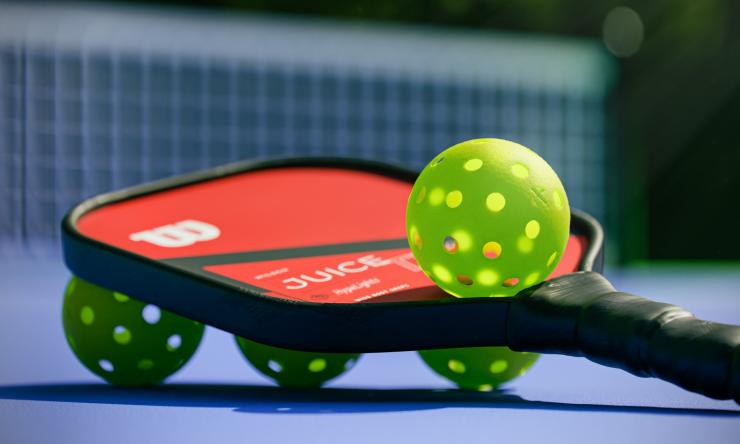Pickleball injuries in older adults
As pickleball is becoming increasingly popular among older adults, they should be mindful of injuries that occur while playing the sport. A Baylor College of Medicine sports medicine expert explains how injuries form and best practices to keep the body flexible.
The most common pickleball injury is a problem with the rotator cuff tendon in the shoulder, which can cause shoulder pain, especially with movement and use. The problems can range from tendonitis and bursitis to a tear of the rotator cuff tendon, and bigger tears can create weakness and inability to use your arm.
“The unfortunate reality of the rotator cuff is that everyday use can cause tearing and damage,” said Dr. Bruce Moseley, an orthopedic surgeon in the Joseph Barnhart Department of Orthopedic Surgery at Baylor. “You don’t necessarily have to do anything wrong or abnormal to get a rotator cuff tear – in many instances it just happens as a consequence of living.”
Although some rotator cuff tears occur as a consequence of an accident or injury, for many people rotator cuff damage appears over time. Most adults who use their shoulders are at risk for damaging or tearing their rotator cuff tendon. Reaching overhead while playing a racket sport like pickleball requires a lot of force being generated by the rotator cuff tendon that can worsen or exacerbate rotator cuff injuries.
Although rotator cuff tears are not preventable, the shoulder performs better when it is flexible and strong, so make sure to stretch and do light to moderate strengthening to maintain the health of the shoulder.
“If you warm up and stretch before your activity and ice down afterwards, your shoulder will be better prepared for the activity and will recover quicker,” said Moseley, who is also a member of the orthopedic and sports medicine team at Baylor Medicine.
Surgery is the only solution to treat a torn rotator cuff. Some opt out of the surgery and choose to live with it, but it can be painful and limit movement. If you are an active person, maintaining that same level of activity with a torn rotator cuff is difficult. Small tears may not bother some as much, but as the tear enlarges, it becomes harder to successfully operate. Small tears might not cause many symptoms, but they are persistent and the tear can become massive.
“The success rate of surgery to permanently fix the problem goes down as the size of the tear goes up, so if you're having lingering shoulder pain that isn’t getting better over time and the pain is getting worse as the activity continues, I recommended seeing a specialist,” Moseley said. “If we can get to the tear and fix it while it is small, the success rate is much higher.”
While a torn rotator cuff tendon is the most common, pickleball and racket sports can cause additional injuries, including:
• Meniscus tears
• Tendon ruptures
• Aggravation of arthritic knees
To prevent additional injuries, warm up and ice down after pickleball. A warmup should generate a light sweat, such as a brisk walk, jog or cycling. Stretch your shoulders, lower back, leg muscles and joints to try to get them as flexible as possible. If you feel achiness or soreness on any body part, put a bag of ice on it for 20 minutes to help it recover completely before playing again. You can also take over-the-counter pain relief medications, such as Advil, Aleve or Tylenol.
“Consider seeing a physician if you have pain that gets progressively worse in the shoulder or pain that persists for a long time after your activity. These may be warning signs of a torn rotator cuff tendon, so make sure to get it checked,” Moseley said.










